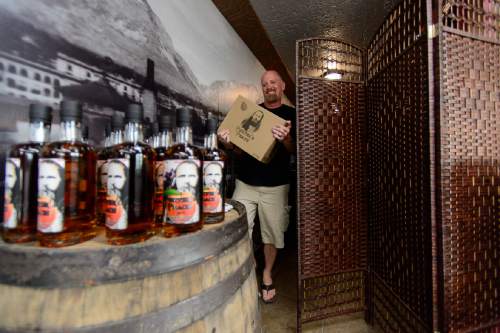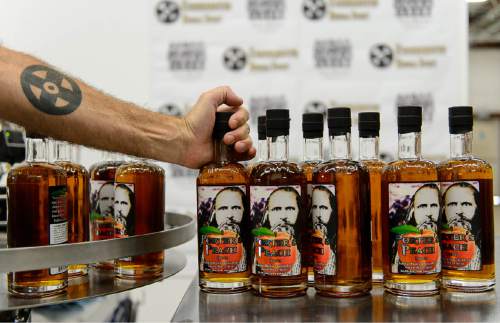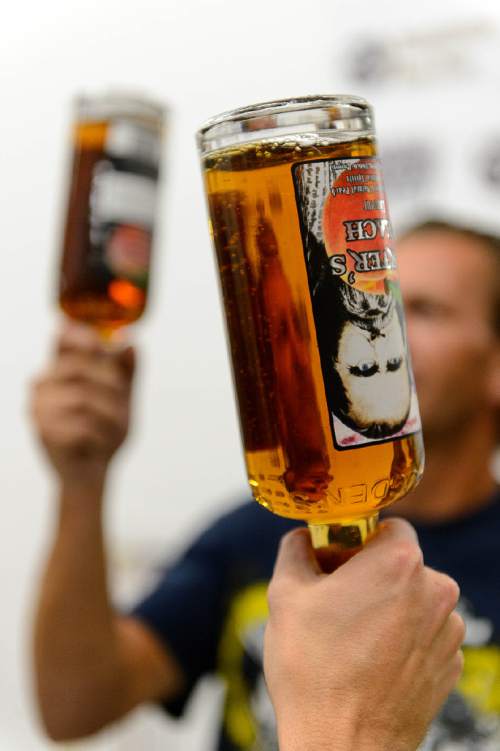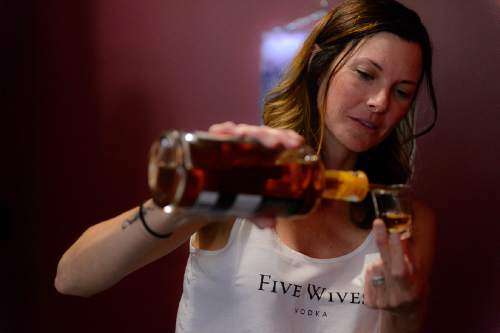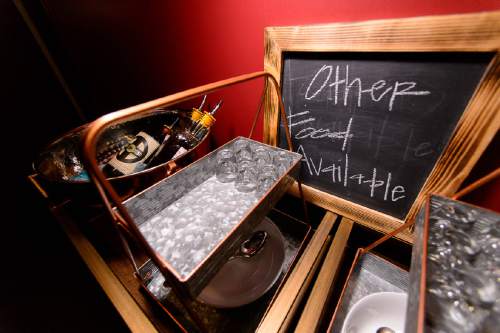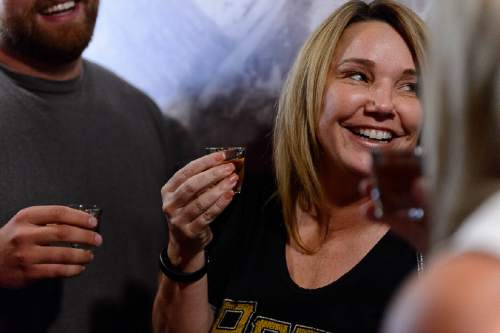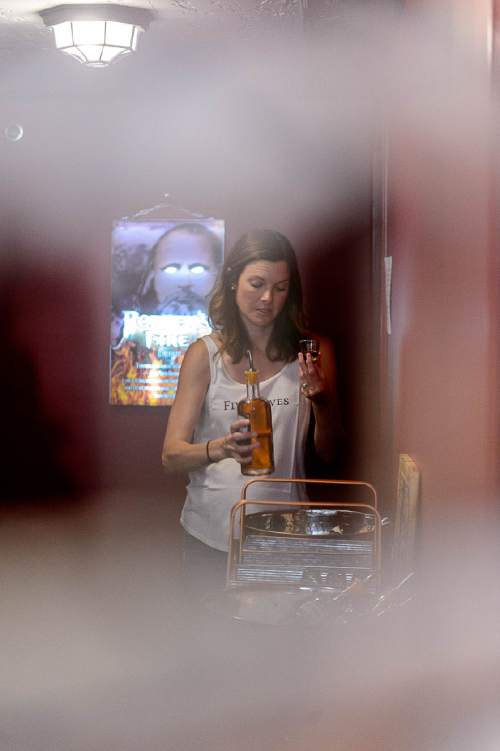This is an archived article that was published on sltrib.com in 2016, and information in the article may be outdated. It is provided only for personal research purposes and may not be reprinted.
At Ogden's Own Distillery, the tiny hallway that leads to the bottling room and restroom also doubles as a tasting area where guests can sample the spirits and liqueurs made on site.
While the space may be cramped, owner Steve Conlin isn't complaining, because until July 1 — when a new law went into effect — tastings were prohibited at Utah distilleries. Previously, samples were allowed only at breweries and wineries.
In recent months, distilleries were getting around the restriction by applying for special educational permits from the Utah Department of Alcoholic Beverage Control, which allowed tastings as part of distillery tours.
Earlier this year, lawmakers decided they needed to fix that loophole.
But in the process of giving distilleries the ability to legally offer tastings, the Utah Legislature also decided to add new restrictions, which manufacturers say has complicated the sampling process at wineries and is causing financial havoc at Utah breweries.
Under the new tasting law, all liquor manufacturers must now create a "distinct area for consumption" — something akin to the Zion Curtain that new restaurants serving liquor must have — so that tastings are "outside the view of minors" who may be on the premises.
At Ogden's Own, where space is minimal, Conlin decided to place a tasting table in the back hallway and separate the area with an accordion screen made of wicker.
"While it feels a little silly to be sampling in a hallway, we're making do," said Conlin. "We've kind of just learned to work around it."
Customers don't seem to mind paying the small tasting fee — another requirement of the law — but most think the separate tasting area is strange and unnecessary.
"It's silly," said Ogden resident Matt Hinds, who was at the distillery to sample the new Porter's Peach Liqueur, a blend of peach and whiskey. "Most people know that if you're coming into a distillery you're probably going to see alcohol."
"It's the dumbest thing ever," added customer Kevin Smith. "It makes more sense to just have [the distillery] be for 21 and older."
—
Burning brewers • Under the new tasting law, the total amount of liquor served at one time cannot exceed: 5 ounces of wine; 2.5 ounces of spirits; or 16 ounces of beer, heavy beer or flavored malt beverage.
Trent Fargher, owner of Shades of Pale Brewing in South Salt Lake, said the new law "doesn't work for brewers," especially when customers want to sample higher-alcohol beers — which in Utah must be sold in bottles.
"You can't open a beer and pour out 2 ounces and save it for later. It's not going to taste the same in two hours," he told the DABC Commission earlier this week. "It's a problem for carbonated beverages that oxidize quickly."
It also means a lot of beer gets poured down the drain, along with profits.
Fargher said this is not a problem for beer that is 4 percent alcohol by volume (3.2 percent by weight), because it can be sold on tap. It also doesn't affect spirits or wine, as the latter can be packaged in pressurized, sealed bags to minimize oxidation.
A long-term solution would be for the Legislature to "allow us to pour full-strength beer on tap," Fargher said. That's unlikely, so Fargher has decided to apply for a club license to allow customers to try any beer that Shades of Pale offers without a size limit.
Nina McDermott, the DABC's director of compliance and licensing enforcement, told the liquor commission earlier this week that she was concerned about such a request.
"Are they just looking for a way to circumvent the [tasting] law?" she wondered.
The situation caused enough doubt among commissioners that Fargher wasn't granted a club license this month — even though one is available. He is still on the waiting list.
—
Food requirements • The tasting law has another quirk: requiring distilleries, wineries and breweries to have "substantial food" available for those who are sampling. Customers aren't required to buy food, but a sign letting them know it's available for purchase must be in clear view.
Lawmakers didn't define "substantial food." They left that up to the DABC, which will begin formulating a new rule in coming months.
The wording is problematic, said McDermott.
"No one wants to go in and start listing foods," she said in a recent meeting of the DABC's advisory board, made up of bar, restaurant and liquor manufacturers. Liquor manufacturers are not required to have full food-preparation facilities as a restaurant or dining club does, the law states, but on the other extreme, they can't offer just pretzels or peanuts, said Sheila Page, the assistant attorney general representing DABC. "Everyone agrees it shouldn't be just popcorn or a bag of chips."
At The Hive Winery in Layton, owners Jay and Lori Yahne offer packaged snack packs with cheese, dried fruits and nuts, which have met with DABC approval.
At Sugar House Distillery in Salt Lake City, owner James Fowler will heat up ramen noodles on a hot plate for tasters who want it. But in the past four weeks since the tasting law went into effect, he said, "I haven't sold a single one."


